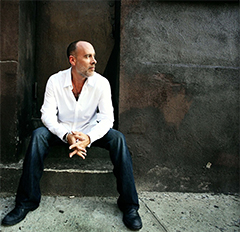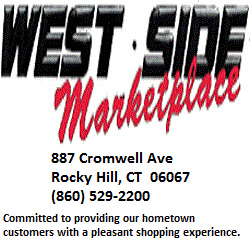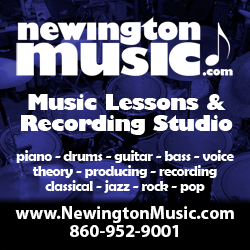

Face the Music: Artist Interview: Marc Cohn
By JOBY ROGERS
MIDDLETOWN - Marc Cohn is a Grammy Award winning singer-songwriter. As a child Marc listened to his older brother rehearse songs of the Beatles, Ray Charles and Motown with his band in the basement of their home in the Beachwood suburb of Cleveland, Ohio and he has been obsessed with music ever since. Best known for his hits â€Е"Walking In Memphis” and â€Е"True Companion” Marc is now a 30 year veteran in the music business. In 2005, Cohn was shot in the head during an attempted carjacking in Denver, Colorado following a concert appearance. After recovering from the near tragedy Cohn released â€Е"Join the Parade” in 2007 which helped him find solace and heal from the experience. Cohn’s newest effort â€Е"Listening Booth 1970” is a collection of his take on the hits of that year. I chatted with Marc by phone from his New York City apartment for â€Е"Face The Music”.I myself am a child of the 70’s. What inspired your newest studio release â€Е"Listening Booth 1970”?
To be honest I was ready to get back in the studio because it’s a place I love to work but I didn’t have enough original songs to make my own record. I’d always been interested in the idea of a covers record but not just for the sake of doing it and I didn’t like the idea of a generic cover LP without a theme. Once my producer and I hit on this idea of taking a musical snapshot of just one year I was interested. 1970 was the year that immediately came to mind because some of my favorite albums of all time had come out that year. And whether we used songs from those albums or not wasn’t that important to me, I just liked the idea of choosing songs and trying to re-imagine them from that one 12 month period in musical history.
Were these songs that specifically revoked your childhood memories?
Almost all of them were among my favorite songs of the time and still are. They were just so popular on the radio that there was no avoiding them. The point was finding songs that we could re-arrange that made them feel like you were hearing them again for the first time. That was crucial along with the fact of wether I could sing them well or not.
Because these are covers, on the vocalist side of things was it easy to interpret the material and still deliver a genuine version of it?
If it wasn’t. We didn’t do it. That was the whole point. It had to sound genuine and authentic and to be honest there was no competing with Van Morrison, Cat Stevens or Paul McCartney on some of their best songs. The only way to make that work is to really do them from a completely different perspective. The only way to make that work was to arrange the songs in keys that were so different that there was nothing similar about them. We purposely chose keys that were relatively low and in my range so I wasn’t competing with Joe Cocker on â€Е"The Letter” or with McCartney on â€Е"Maybe I’m Amazed”. They’re such great rock vocals that we made a conscious decision to not make these tracks necessarily ‘rock’ tracks. Some of them have a late night bluesy feel which differentiated them from the originals.
Which cut was your favorite to record?
I really love our version of â€Е"The Only Living Boy In New York”. It’s one of my favorite songs from one of my favorite albums from my favorite artist of all time, Paul Simon. It was a beautiful pop record and we stripped it down to its essence and recorded it live in one to two takes with an upright bass with producer John Leventhal. I think it brings out some of the sadness at the core of that song that I wouldn’t say was missing from the original but in a way was more noticeable. It was Paul Simon’s goodbye to Art Garfunkel while they were in the middle of making a masterpiece. I also love our version of Bread’s â€Е"Make It With You”. We took this song from a very popular middle of the road Pop band that did these literally ‘white bread’ type arrangements, brilliant as they were and we turned it into an Al Green type R&B song with the great India Arie performing a great duet vocal.
Which track was the most challenging?
John Leventhal had to twist my arm to even attempt to cover Van Morrison’s â€Е"Into The Mystic” from one of my favorite albums of all time â€Е"Moon Dance”. I really felt that it was useless to try. John convinced me that it was worth it and I think I acquitted myself fairly well. But everybody knows there’s nothing like that original track. Even to this day I hear that song and It stops me in my tracks.
When writing a new album do you retain any of the pressure from past successes.
Not at all. Nah (sic) man. I let go of that one a long, long time ago. At this point I’m just writing to get better and express myself. To try to contribute work that I can look back on and be proud of. I’m not thinking of how it compares to anything I’ve done. Frankly, if anything, I’m thinking of how it compares to the work I’ve admired over all these years. I’m still reaching for the brass ring in that regard. I’m still trying to write that â€Е"Wichita Lineman” or â€Е"Moon River”. These incredibly moving, artistic, poetic songs that are beautiful, ineffable and timeless. That’s what I’m going for. It has nothing to do with my past.
Growing up in the 60’s in Cleveland what impact did your surroundings play on your chosen profession?
Even though the Rock and Roll Hall of Fame is in Cleveland when I was growing up, Cleveland wasn’t really known for any particular music scene although some great musicians have come from there. What inspired me the most was the music going on in my own house. My dad died when I was quite young but I still remember vividly his booming baritone voice. He was a really good singer. One of my older brothers who just passed away a year ago was an amazing piano player and had a band that use to practice in our basement. They covered Ray Charles, Motown and Burt Bacharach. I got to hear and watch my brother play that music live from two feet away. I was moved by how transported he looked every time he sat down at a piano. That impacted me and made me stand up and take notice that music was a powerful force.
With your Mom passing away when you were just a child and your Dad only ten years later, what impact did that have on you as an artist and songwriter. Was music a solace for you?
Definitely. I think it’s events like those that stay with you for life and in someways often determine who you become and what you’re drawn to and maybe even turn you into an artist. It gives you a way of expressing and working through things. Music was always that for me. First as a listener and then as my own artistic endeavor. I stopped imitating everybody I loved and found my own voice. Those early events I’m sure contributed to me using music as a mode of expression.
Do you have any formal music education?
None. I took a couple of lessons when I was really young. First on guitar and then on piano. The teacher wanted to teach me scales and I said I wanted to learn â€Е"Hey Jude” and she said ‘not yet’ and I said â€Е"Ok, then I’ll teach myself” (laughs). To this day I’m very conflicted about that because of how little l actually know in terms of music theory and harmonization. Yet at the same time I think it’s my limitations that transformed into a certain style. Sometimes I come across a player who is so gifted and able to do almost anything but that doesn’t necessarily mean that they have a singular style themselves. It’s an ongoing conflict for me. I don’t like how much I don’t know.
What was it about music that made you reach beyond someone who just liked listening or dancing to it to become an actual performer and thrive in the music business?
In my 20’s I had a lot of drive and determination and a lot to prove and a lot of luck. Those things combined gave me an opportunity to make music my career.
Now that music is your career, what do you like most about your profession?
Two things come to mind immediately. I’m incredibly grateful that I still have an audience because without them you don’t have a career. I never take it for granted that when I pull into a town, whether it’s a four hundred seat place or a fifteen hundred seat theater, just the idea that there’s a lot of people coming to hear my music that night never escapes me. It’s always thrilling to me that all these years later knowing that I haven’t had hits on the radio for a long time, I’m not on many TV shows but my music has resonated. The second thing is that I love the brother and sisterhood that artists have. I’ve been able to collaborate and hang out and become friends with some of my all time heroes. There’s nothing better than that.
What was the first song you ever performed in public?
A band that I was asked to join when I was in tenth grade and the first song we ever rehearsed or played was ‘Maggie May’ by Rod Stewart.
Was that band â€Е"Doanbrook Hotel” ?
Yea, that was Doanbrook Hotel, very good Sir (laughs).
After ‘Doanbrook’ you headed off to ‘Oberlin College’ and while there you taught yourself to play piano. Why piano?
Well, I ran out of ideas on guitar and I happened to be at a school that had a beautiful conservatory with 50 practice rooms, each with a gorgeous Steinway Grand. I would bring my guitar into one of those rooms and teach myself to translate the chords from guitar to piano. It was arduous but that’s how I taught myself, chord by chord. I was really motivated to just find a way to get songs out. That turned out to be a very useful exercise. Even though I still write on both guitar and piano ultimately a large part of my sound is identified via the piano.
How do you approach song writing?
Very rarely (laughs). The truth of the matter is over the last 24 years I’ve release 50 to 60 original songs. It’s hard for me. Ideas don’t come frequently and when they do I don’t often finish them. I’ve felt that I’m way too good an editor. I’ll stop an idea before I even give it a chance to breathe. I don’t write daily and sometimes years can go by and I have nothing to say.
Who was your first concert?
A triple bill. The Beach Boys with the Shangri La’s and The Lovin’ Spoonful.
I know that Van Morrison was a big influence on you. Who were your other influences?
He was huge! Aww man there’s so many and for different reasons. Paul Simon for me is one of the greatest songwriters and record makers. I don’t think there’s anyone who’s maintained his level of artistry and for so long. The quality, longevity and timelessness makes him pretty much unmatched. Maybe Dylan is there too. Joni Mitchell, especially that span of records running from â€Е"Blue” to â€Е"Hejira”. The Beatles, Stones, Stevie Wonder, Al Green, Ray Charles, The Band, James Taylor, Jackson Brown and Bonnie Raitt. Those are the artists that I aspire to be like both sometimes as a human being and artist. From when I was 12 to 16 years old was my golden age.
â€Е"Walking In Memphis” was partially inspired by watching the Reverend Al Green performing a service at his â€Е"Full Gospel Tabernacle” church in Memphis. In my examination of your career is it fair to say that gospel had an impact on your vocation?
Absolutely! Which is kind of ironic. I’m a jewish kid from Cleveland, Ohio that ultimately was moved by the music I heard in a church in Memphis. There’s no explaining where you’re going to find inspiration or in my case be spiritually transformed. I was always moved by gospel. I still go back and listen to Sam ‘Cooke and the Soul Stirrers’ and the ‘Dixie Hummingbirds’. That’s some of the most beautiful music ever made.
In February of 1992 you won the Best New Artist Grammy Award. In retrospect was that a blessing or a curse?
I’ve heard about the curse of the best new artist award and it’s so weird to me that anyone would consider it a curse. It’s kind of a press driven thing. I know that there’s truth of past winners who never had another big hit. There are also those who didn’t win and went on to much greater success. That’s what happens, that’s life, it has nothing to do with the Grammy. The Grammy doesn’t make you and the Grammy doesn’t break you. I have mine on a bookshelf here in my apartment in New York City. It’s not prominent. It’s right above a book of Bob Dylan lyrics that he personally signed to me. If you asked me which meant more to me it’s that book. It’s all a blessing.
Starting with your 1991 self titled album that generated the exceptional â€Е"Walking In Memphis” and â€Е"True Companion”, are you amazed that a couple of very well written songs can become hits and carry you through life all these years and still resonate with people?
I’m incredibly grateful for the people who come to the shows to see me live. Not the ones who just know me from the one or two songs they’ve heard on the radio but for those who come out and get to know me. That’s really the key. Yea, it’s incredible to see those songs still resonate all these years later. It’s the audiences reaction that in turn keeps them new for me. We change up the arrangements to keep them fresh. I occasionally ask the audience if anyone came here tonight to hear something a little different and people start yelling out songs that I haven’t played for 15 years and some bootlegs and ‘B’ sides that have never been released. Sometimes I can’t get through a request because I don’t remember it (laughs). That’s when I know that I’ve connected.
Today’s music industry is a tough business to flourish in. Why do you think you’ve succeeded where so many others have failed?
If I started today I’m not sure I’d have a chance. Luckily I got in under the wire when a singer/songwriter could still get on the radio. ‘Memphis’ was a great hit that stuck and got covered by several artist. The real answer to that is that I play live, a lot. I’ve played live more in the last seven years than I have in the first 15 years of my career. To deliver the goods live is what it’s all about. If you can do that night after night people will come back and not only that, they will bring someone who doesn’t know who you are. The best thing I ever hear after a show is when someone says I had no idea who you were until tonight. That’s the reason I keep doing it. I’ve learned from the masters. I’ve been able to get up close and personal watching Jackson Brown or James Taylor from the wings either as an opening act or a friend. If you’re smart enough to keep your mouth shut and your ears open you’ll find out what it takes to hang in there for the long run whether you’re singing for 400 or 4000.
What song are you most proud of?
â€Е"The Things We’ve Handed Down”. I wrote it right before my first child was born. I think it’s one of my better lyrics with a pretty melody. Even though it wasn’t a hit it’s on par with ‘Memphis’. It’s a song that really meant a lot to people that know it. Particularly to those who are about to become parents. I don’t think anybody has written about it quite that way. I’m proud that it’s been covered a couple of times.
For musicians like yourself with longevity, is it difficult to figure out what you’re supposed to sound like in today’s market?
No. It’s not my path to change things to try to fit in. I’m not a Pop artist. I had a Pop hit. My path has never been about how to keep up with the marketplace.
I’ve probably ignored the marketplace to a fault.
What’s your approach to maintaining your original sound without alienating any of your core fans?
I’m not sure I’m even conscious of what I’m trying to accomplish with my sound. I’m just trying to write songs that feel genuine and honest to me. I experiment sometimes and try to step outside the box.
In today’s world of instant social media with everyone having a camera and instant access to the internet, having control of the quality and content of what gets out there is impossible. How important is image to you?
Not very. I like Facebook. I like that I have interaction with my fans. I have social media people who help me stay current with all of that. I do question and answer forums with fans and it is fantastic. Social media to me is more about connecting than image.
Before I continue Marc, I’d like to ask if it’s ok with you to talk about the carjacking incident?
Sure.
In 2005 you were involved in a carjacking while leaving a Denver performance. The bullet struck you in the head but did not have enough velocity to penetrate your skull. The doctors were able to remove the bullet and you were released the next day. How has that experience changed you as an artist and as a human being in general and how do you deal with the psychological effects of that experience?
That’s a tough question to answer in an interview. I remember a man running in the distance and thought nothing of it. Then just a few minutes later he was pointing a gun at our van. I yelled ‘duck’ just before a shot was fired. I touched myself and there was blood all over my hands and my clothes. I knew I was the one who’d been shot. I thought that’s the last second I’ll be here. Some of those issues are ongoing and some have been resolved. I definitely had PTSD that I sought a therapist for. I had nightmares for a while and some panic attacks but that has largely disappeared. The experience taught me more about gratitude and priorities. The oddest effect was that it got me writing again (laughs). It’s really not much of a factor for me anymore.
Join the Parade was the first album you released after that life changing event. with cuts like ‘Dance Back From the Grave’ and ‘Life Goes On’’ was that LP a therapeutic result of that experience?
They’re all therapeutic albums (laughs). I’m trying to work through something on all of them. But that one for sure. I was trying to work through issues of mortality and safety. The timing of it was very strange. I should’ve been on tour but I had to go back home and try to heal, mostly emotionally. Then hurricane Katrina hit a few weeks later and then there was this traumatic national event unfolding on TV which was devastating to watch. Because I was so vulnerable and shaken, watching the event of Katrina unfold made it all the more unsettling. When I feel that way, I write. Perhaps a strange way to break writer’s block. Ironically the morning after I got shot I got a call from Graham Nash who said â€Е"Great career move Marc” which was pretty F****g funny (laughs).
Which song on that LP is most autobiographical?
â€Е"Live Out the String”, â€Е"Dance Back From the Grave” and â€Е"Life Goes On” deals directly with that incident. My sense of how I needed to come back from nearly dying and dealing with mortality and impermanence are in there.
OK. Let’s leave that right there. Thanks for your candidness. If you could go back in time what advice would you give your younger self about getting into this business?
â€Е"Marc. Breathe a little more.” (laughs).
What is the greatest opening lyric of all time?
Ohh… what a great question? â€Е"We were born before the wind so much younger than the sun”.
If not a musician what would you be?
Psychotherapist because I’m interested in people’s lives and their troubles.
What other non musical passions do you have or what about you would surprise your fans?
That I’m a father before a musician. I have four children ages eight to 23. I’ve got my plate full. I’m juggling three balls and a lamp (laughs).
Thanks for your time and I’ll see you at the gig in Hartford.
Thanks Man. Nice talking to you.
For more on Marc Cohn Visit www.marccohn.net








